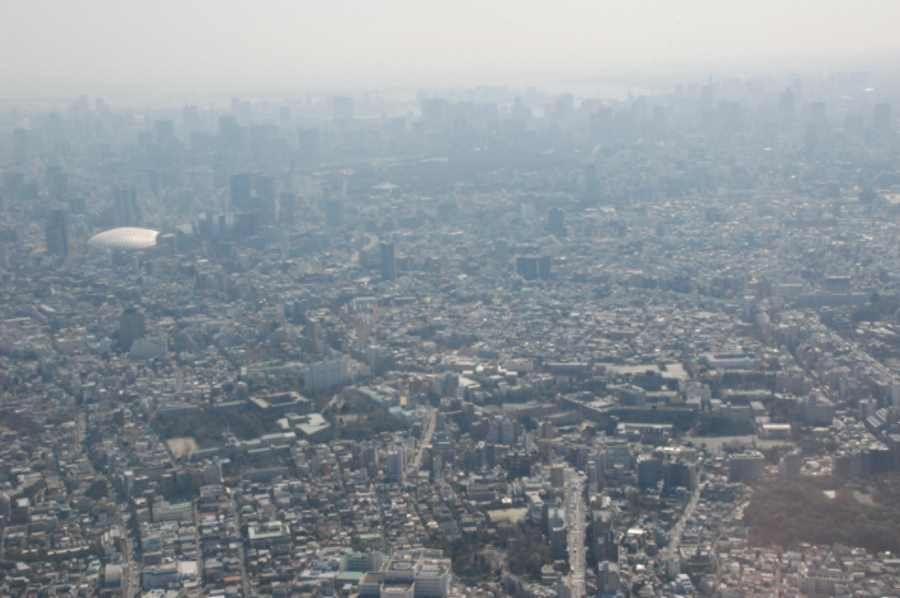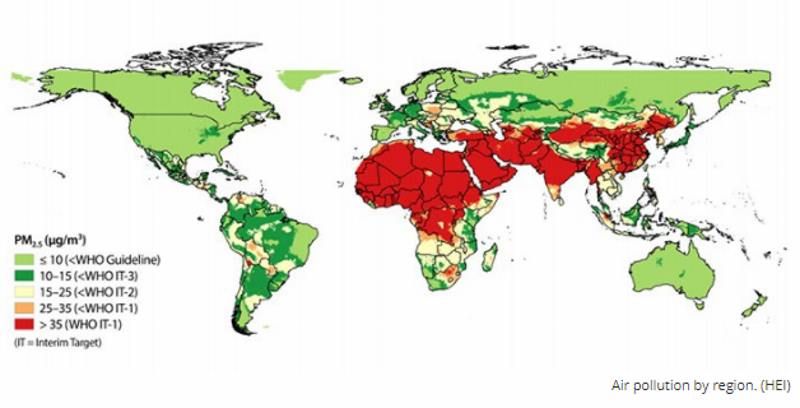
95 percent. The world’s population breathes polluted air
According to the new 2018 State of Global Air report on air quality, more than 95 percent of the Earth’s population breathes polluted air. Poor air quality affects health and can contribute to premature death.
The State of Global Air 2018 study was authored by the Health Effects Institute (HEI) – An independent organization thatóra is engaged in research on the health effects of air pollution. HEI report publishes every year.
Poor air quality has a huge impact on health. Strokes, heart attacks, chronic lung disease and also lung cancer are only someóhe health problems thatóre can be linked to air pollution. HEI estimates that more than six million died in 2016 as a result of poor air qualityów osób around the world. It follows that air pollution is already the fourth biggest threat to human health right after high blood pressure, poor diet and smoking.
In a study thatóhe results of the study, which have just been published in a report, mark the first time that indoor air quality measurements have been included on such a large scale. Such pollution from burning coal or wood for cooking or heating the home is responsible for 2.6 million deathsóin 2016.
Ground-based measurements were combined with satellite readings and other sources ofódles of data, including other surveys and population densities, to determine the number of at-risk settlementsób. The situation is worst for residentsóin póhe northern and western parts of Africa, the Middle East and southern Asia, as can be seen in the map below.

In the map above, you can róalso noted that air pollution is highest in the world’s poorest countries. Richer communities fare much better in this comparison. The authors of the study point out that the gap between the most polluted and least polluted countries is constantly growing.
– Nowhere is this more evident than in the developing world, where a third of the world’s population faces risks from air pollution – admitted Den Greenbaum, head of HEI.
As the population ages, countries such as China and India record more deaths each year, the report saysóin contamination-related. No data is available from many African countries.
The report also notes that the concentration of particulate matter has increased by an average of 18 percent. 2010-2016. Although in someóhe improvements were observed in some areas. Take the example of China, where air pollution is still high, but the government has spent a huge amount of money to fight smog in recent years.
– Trends, whichóre we present, show real progress in someór parts of the world. However, there are still serious challenges. Air pollution is taking a huge toll around the world, contributing to the premature deaths of millions ofów osób – said Bob O’Keefe from HEI.
Of course, the basic question is how to reduce air pollution. The challenge is growing every year. In someór parts of the world have begun to migrate with it. People from many cities in India are fleeing to the countryside because of the smoggy haze floating in the air. The same is true in China.
„Measures to reduce air pollution should address not only the larger-scale burning of coal by power plants and industry, but also the use of coal or róof various forms of biomass for heating and cooking in millions of small households around the world” – reads the report.
The report shows that only less than 5 percent of. The planet‘s population enjoys air that meets the quality standards of the. The full report is available on the State of Global Air website.
Sourceóbackground: science alert, photo. CC BY-SA 2.0/ Wikimedia Commons/ Wilhelm Joys Andersen





